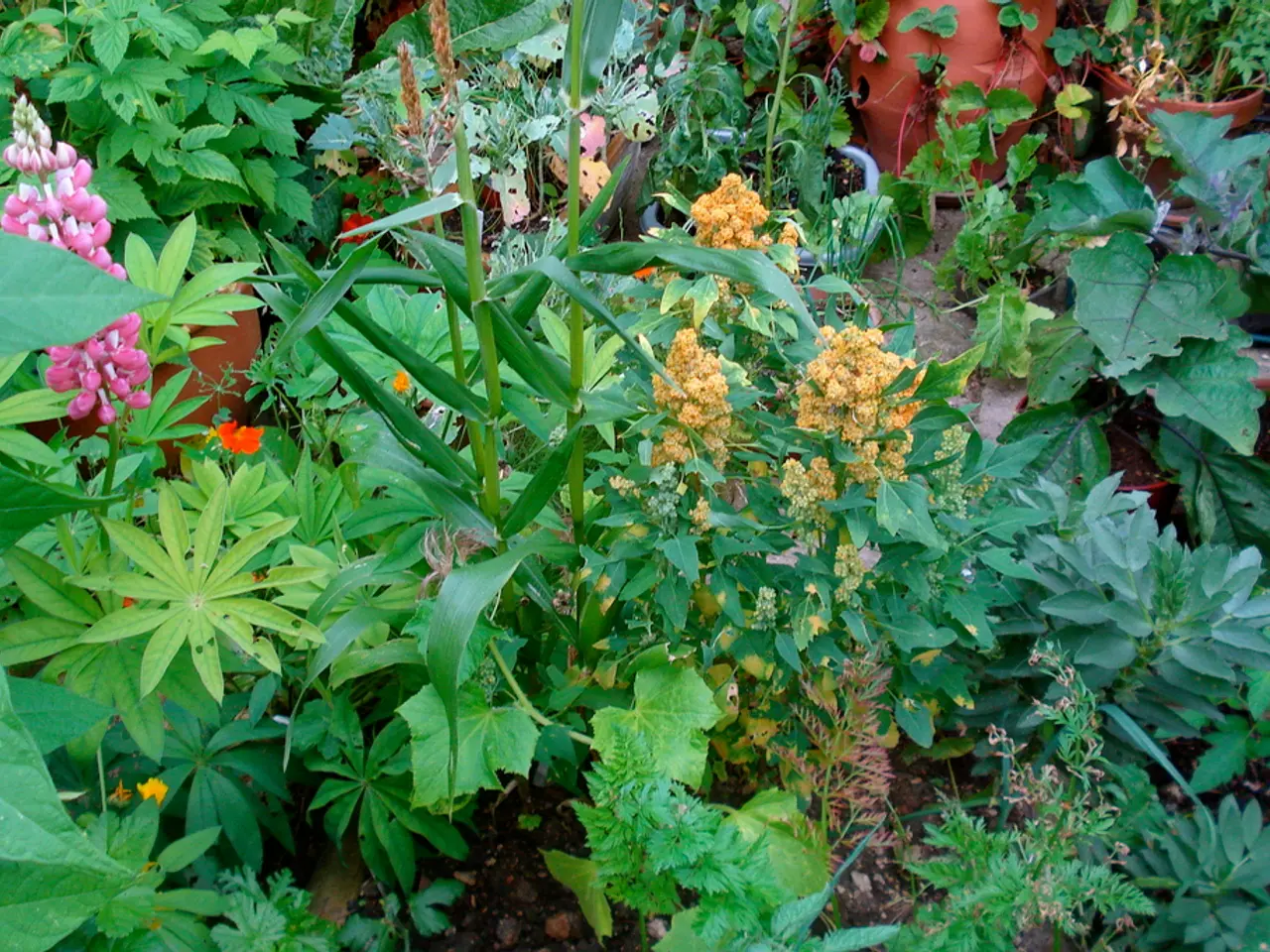Enhances Brain Function: Gardening boosts Focus, cognitive abilities, and creativity, asserts medical professional
Gardening has emerged as a potent tool for enhancing brain health and cognitive functions, offering a myriad of benefits that support mental well-being and cognitive development.
**Stress Reduction and Anxiety Relief**
Immersed in the verdant greenery, soothing scents, and calming sounds of a garden, individuals find solace from the burdens of stress and anxiety. Professor Kathy Willis, in her book "Good Nature," explores the profound impact of gardens on cognitive state, while psychologist Sue Stuart-Smith delves into the benefits of gardening on mental health. The therapeutic nature of gardening activities provides a sanctuary where one can disconnect and reboot their brain, offering a restful state that supports overall brain health by mitigating the negative effects of stress [1][3].
**Neuroplasticity and Memory**
Research indicates that gardening tasks can stimulate nerve growth in the brain, which is crucial for maintaining and improving memory functions. Studies involving individuals with dementia have shown that gardening can promote the growth of memory-related nerve cells [1][4]. The Dubbo Study in Australia further supports this, demonstrating that gardening can diminish symptoms of stress and anxiety in individuals with established dementia, and may even delay the progression of the condition [2].
**Mental Health and Mood**
Engaging in gardening routines can boost mood and overall mental health by providing a sense of purpose and accomplishment. This can be particularly beneficial for individuals dealing with depression and trauma [5]. Neurologist Oliver Sacks underscored the restorative and healing powers of nature and gardens for neurologically disabled individuals.
**Attention Restoration Theory**
Exposure to natural environments, such as gardens, can engage people's involuntary attention, allowing their directed attention capabilities to recover and be more effective [3]. This can improve cognitive performance by reducing mental fatigue.
**Improved Cognitive Ability**
Participation in gardening activities has been linked to improvements in cognitive ability, as it involves various sensory and motor functions that challenge and engage the brain [5]. Conscious gardening tasks, such as planning garden layout and crops, can engage executive function, requiring problem-solving and decision-making skills.
**Social Engagement and Cognitive Reserve**
Gardening with others can foster social connections, which are important for maintaining cognitive reserve and supporting brain health over time [1][3]. The RHS's Gardening for Schools program has been described to rebalance cohorts, particularly benefiting those who struggle with focus in a classroom environment.
In summary, gardening not only provides physical exercise but also offers a variety of cognitive and psychological benefits that can enhance brain health and function. From reducing stress and agitation in care-home residents with dementia to improving focus and creativity in schoolchildren, the benefits of gardening are far-reaching and profound.
- In the pursuit of mental well-being, one can turn to gardening as a home-and-garden lifestyle activity, immersing oneself in the calming environment to find relief from stress and anxiety.
- Gardening can stimulate nerve growth in the brain, which is vital for maintaining and enhancing memory functions, particularly beneficial for individuals with dementia.
- Engaging in gardening tasks can boost mood and mental health by providing a sense of purpose and accomplishment, benefiting individuals dealing with depression and trauma.
- Exposure to the natural setting of a garden aligns with the Attention Restoration Theory, allowing the mind to recover and enhance cognitive performance by reducing mental fatigue.
- Participating in gardening activities can potentially improve cognitive ability, as it engages various sensory and motor functions, challenging the brain and requiring problem-solving and decision-making skills.
- Moreover, social engagement experienced through group gardening can help maintain cognitive reserve, supporting brain health over time and benefiting students struggling with focus in a classroom setting.



